Regulations on school buses, class sizes, safe traffic participation, education quality assessment... are new policies effective from January 2025.
Dark yellow school buses
According to Decree 151/2024, school bus transport vehicles must be painted dark yellow on the outside of the vehicle. In addition to the dark yellow paint, the front and two sides of the vehicle above the windows must have signs identifying them as vehicles specifically used to transport students.
This type of vehicle must also have a device to record student images and a device that can warn against leaving children in the vehicle; and must have a life span of no more than 20 years. The vehicle must have age-appropriate seat belts or use a vehicle with age-appropriate seats as prescribed.
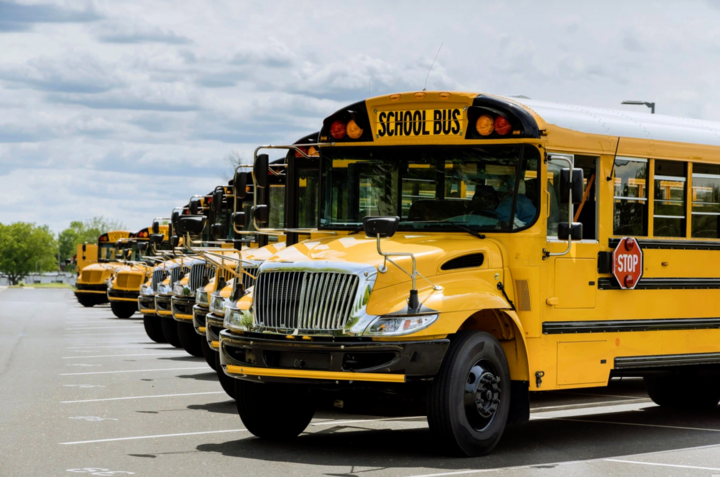
School buses in many Western countries are often painted yellow. (Photo: Getty Images)
For vehicles used for transportation combined with child transport, the vehicle must have signs identifying it as a school vehicle placed on the front and two sides of the vehicle above the windows.
When transporting preschool and primary school children, the vehicle must have at least one manager on each vehicle to guide, supervise, maintain order and ensure the safety of preschool and primary school children throughout the trip. If the vehicle has 29 seats or more (not including the driver's seat) and carries 27 preschool and primary school children or more, the vehicle must have at least two people to supervise the children.
The manager and driver are responsible for checking preschool children and primary school students when getting off the vehicle; preschool children and primary school students must not be left on the vehicle after the manager and driver have left the vehicle.
Decree 151/2024 also requires families not to let their children drive vehicles when they are not qualified, and to regularly remind them to fulfill signed commitments and exchange and grasp information with the school about compliance with laws on road traffic order and safety.
The Decree also requires schools to include compliance with laws on road traffic order and safety as one of the criteria for evaluating and classifying student conduct.
Regulations on school facilities
Circular 23/2024 stipulates standards for facilities of kindergartens, general schools and multi-level general schools, effective from January 31.
The Ministry of Education and Training supplements and flexibly adjusts standards on land area, school size and minimum facility standards, in a direction suitable to the implementation reality in localities.
Accordingly, kindergartens will have a maximum of 30 groups/class, an increase of 10 groups/class compared to the current regulations. For primary schools, each school will have a maximum of 40 classes, an increase of 10 classes compared to the current regulations. For high schools, the maximum number of classes is 50, an increase of five classes.
The Ministry also stipulates that for schools in communes in difficult areas, depending on actual conditions, no more than 8 schools can be arranged. In special cases, in areas with difficult and fragmented terrain, no more than 12 schools can be arranged.
The Ministry of Education and Training has adjusted the minimum average area for a student in urban areas of type III or higher to only 6-8 square meters (depending on the level of education), instead of 8-10 square meters as currently regulated.
In addition, the new regulation also flexibly adjusts in the direction of allowing schools to combine subject rooms (Music, Fine Arts, Technology, Information Technology, Foreign Language, Chemistry...) instead of the current minimum regulation that each subject must have at least one room.
Revise the general education program development process
Circular 17/2024 of the Ministry of Education and Training amends and supplements a number of regulations on standards and procedures for developing and editing general education programs, effective from January 5.
In addition to the revised and supplemented regulations related to the construction and editing of general education programs... The Circular adds the regulation that "any person participating in the construction of a draft program or draft of an edited program is not allowed to participate in the appraisal of that program".
This move by the Ministry of Education and Training aims to overcome the situation where some experts are both on the appraisal council and participate in writing textbooks for the new program, causing unfairness in censorship.
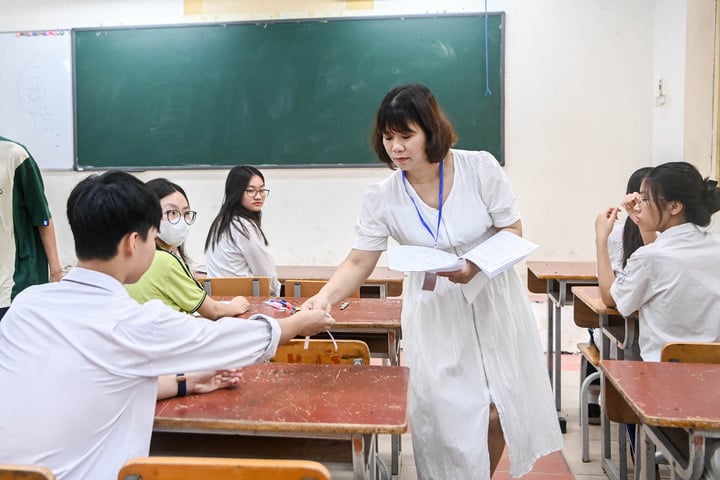
Amending regulations and procedures for developing and evaluating new general education programs. (Illustration photo).
Regulations on job transfer time
Circular 19/2024 of the Ministry of Education and Training, effective from January 14, stipulates the list and periodic time for job transfer by sector and field of education and training at local authorities. This Circular does not apply to vocational education.
Accordingly, the circular stipulates the period for periodic job transfer in the field of education and training from 3 to 5 years. The time for calculating the job transfer period is the time when there is a document on transfer, arrangement, and assignment of tasks from the competent authority according to the provisions of law.
Regulations on educational accreditation
Circular 22/2024 regulates educational quality assessment and recognition of national standards for kindergartens, primary schools, secondary schools, high schools and multi-level general schools, effective from January 25.
Regarding assessment criteria, the new circular reduces the time limit by 1 year compared to the previous regulation so that if a school achieves a low-level education quality accreditation, it will have at least 1 year (previous regulation was 2 years) from the date of external assessment recognition and request for recognition of higher-level education quality accreditation. This regulation motivates localities and schools to accelerate resource investment and focus on implementing quality improvement.
Regarding the rate of teachers meeting training standards, the circular stipulates that schools must comply with general regulations of the Government and the roadmap for raising teacher training standards according to the plan of the province or centrally run city.
With this regulation, the school principal will proactively include in the annual plan the assignment of teachers to attend advanced training courses to meet the regulations of the 2019 Education Law, ensuring the roadmap to improve teacher training standards according to the plan of the province and centrally run city.
The notable new point in the circular is the amendment of regulations on standards for assessing facilities and teaching equipment at all levels (Standard 3) to be consistent with regulations on standards for facilities, subject classrooms, and libraries of educational institutions.
Regulations on admission to study abroad
Circular 20/2024 on regulations for enrolling students to study abroad, effective from January 14. Accordingly, candidates working at agencies, units, and localities are selected to study abroad. The Department of International Cooperation will send a document notifying the acceptance results of the foreign educational institution, information on regulations and scholarship policies to the candidate. The candidate's direct management agency will issue a decision to send the candidate to study abroad when there is a document from the direct management agency agreeing to send the candidate to study abroad.
For candidates working at agencies, units, and localities who are selected to study with scholarships sponsored by foreign parties, the Department of International Cooperation will send a written notice of the admission results to the candidate and the candidate's direct management agency to handle the procedures for studying abroad.
For candidates who do not have a working agency, the Department of International Cooperation will decide to send them to study abroad.
Regulations on management of science and technology topics
Circular 15/2024 regulates the management of ministerial-level science and technology topics under the management responsibility of the Ministry of Education and Training, including: general regulations, identification, selection, appraisal, approval, implementation, acceptance, liquidation, and storage, transfer, and use of research results of ministerial-level topics.
The Circular clearly stipulates that ministerial-level projects are carried out to solve scientific and technological problems in order to improve the quality of education, training and scientific research; contributing to socio-economic development, security and national defense. The results of ministerial-level projects must meet at least the following two requirements:
- Have research results published in scientific journals, proceedings of international conferences and scientific seminars; or scientific journals, proceedings of domestic conferences and scientific seminars; or published as books or monograph chapters or reference books;
- Have master's level training results or support for doctoral level training or have results that are scientific arguments and solutions to solve practical problems within the state management scope of the ministry or have research results that are intellectual property or other applied products.
Ministry-level projects are implemented by selection or direct assignment. Each ministry-level project has a maximum of 10 members participating in implementation, including 1 head, 1 scientific secretary and members according to their titles: main member, member, technician, support staff.
The implementation period of a ministerial-level project shall not exceed 24 months (not including the extension period if any). In special cases, the Ministry of Education and Training shall decide to extend the implementation period to more than 24 months.
Funding sources for implementing ministerial-level projects: Science and technology career funding allocated to the Ministry of Education and Training; other legal funding.
This Circular takes effect from January 5.
Khanh Huyen
Source: https://vtcnews.vn/7-quy-dinh-moi-ve-hoc-sinh-truong-lop-co-hieu-luc-tu-thang-1-2025-ar917704.html








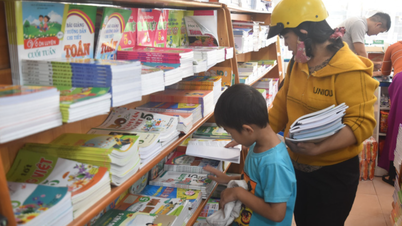

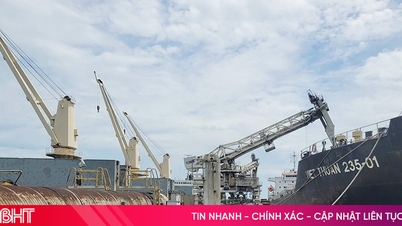

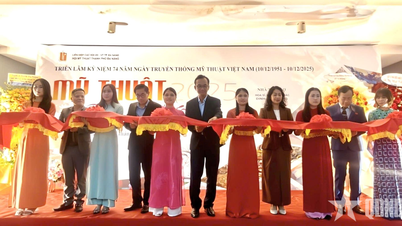





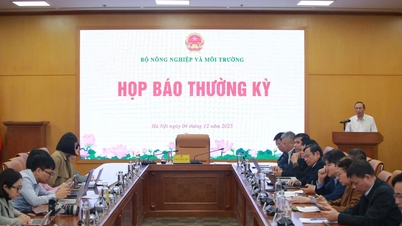

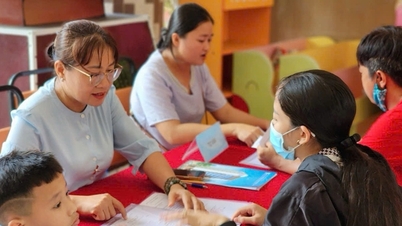

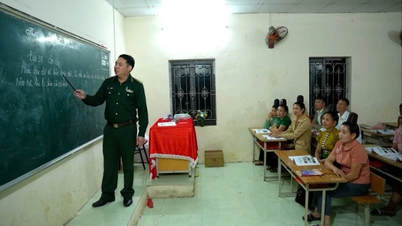

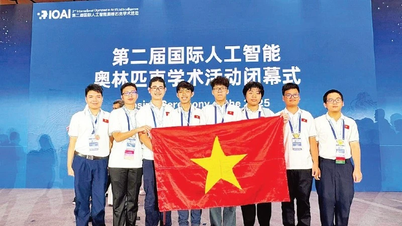
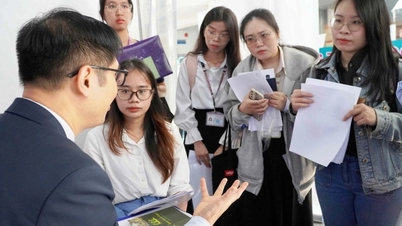


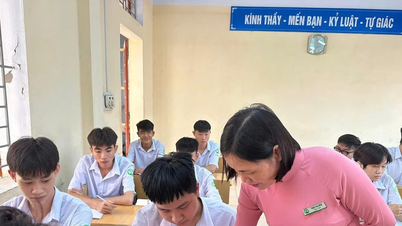






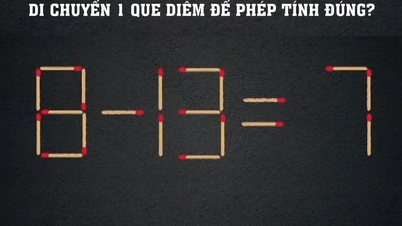
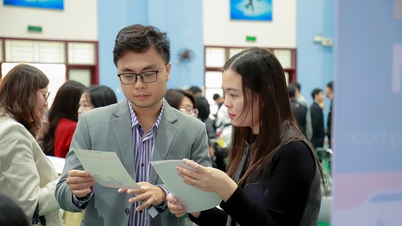
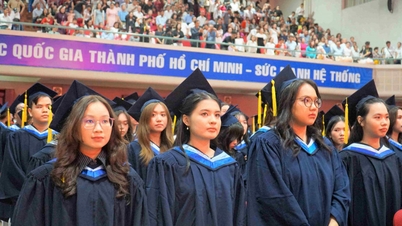

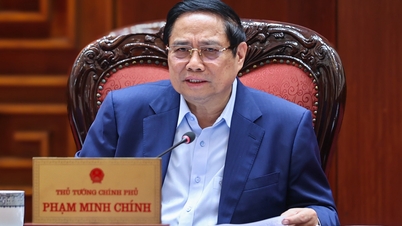

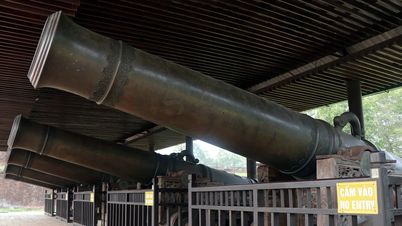

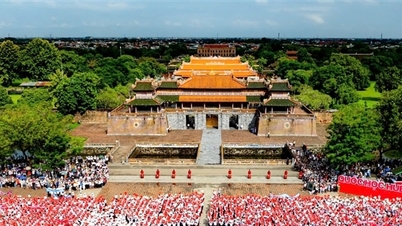

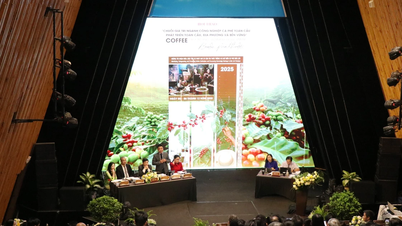






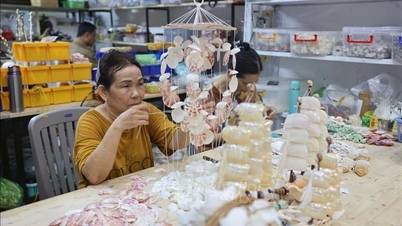


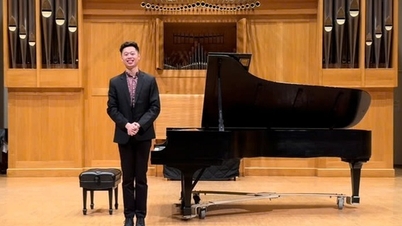
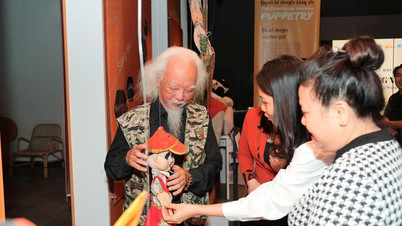













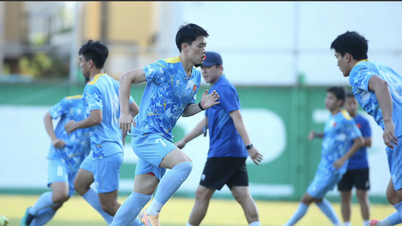




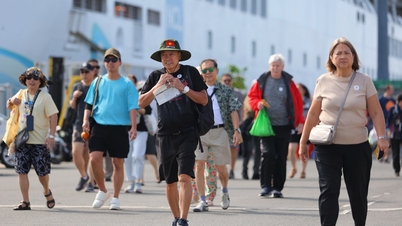









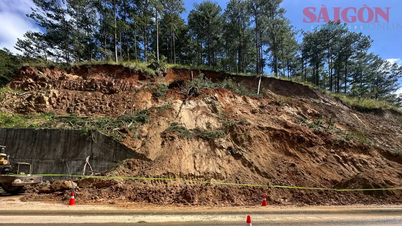

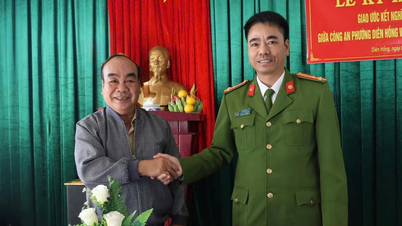

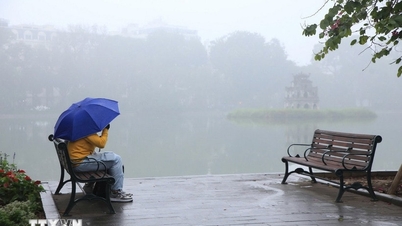
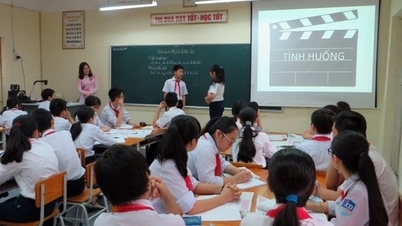

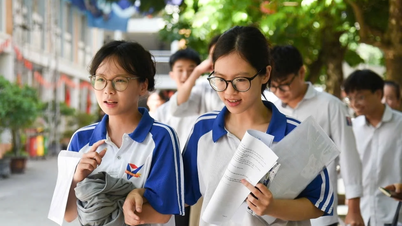

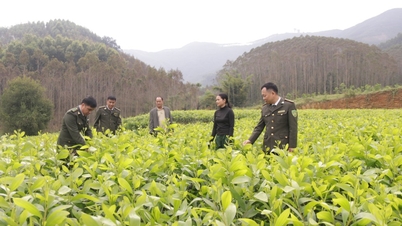

















Comment (0)